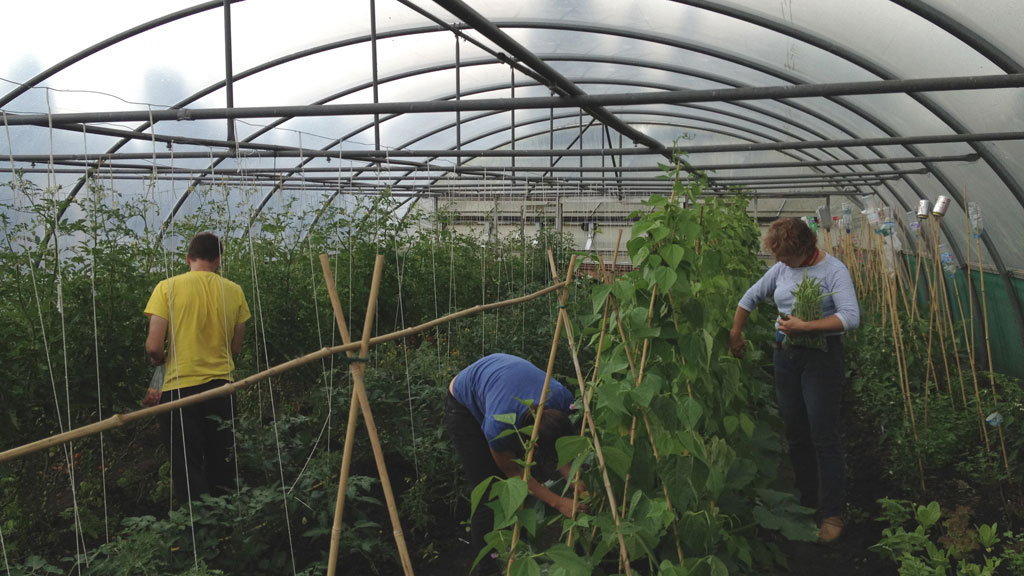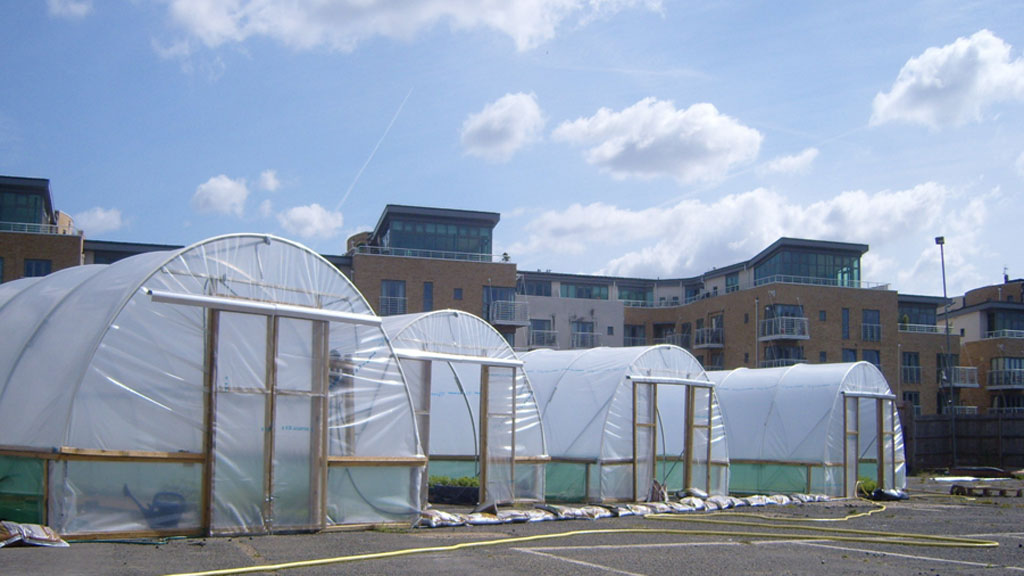The urban farms that are growing food – and growing jobs
Take one piece of disused land, turn it into a farm – and create jobs and training while you’re at it. Channel 4 News has talked to two schemes who’ve been recognised for their pioneering work.

Just under a million young people are out of work: yet the country has a serious skills gap, according to major employers. But two London-based projects have just been recognised for their work creating dozens of jobs and apprenticeships, through innovative urban growing schemes.
Growing Communities and Cultivate London were both prize winners at the annual Observer Food Monthly awards, which paid tribute to their commitment to producing good quality, sustainable fruit and veg, while training dozens of volunteers and creating jobs in the process. Felicity Spector spoke to the people behind the good work.
Growing Communities started sending out small scale veg boxes in 1994: now it has grown into a far larger operation, running a fully organic farmers market, and packing over a thousand bags of fruit and veg ever week. The business currently sustains 23 part time employees and has just won Big Lottery funding to support four volunteer apprentices a year.
Farm to market
The latest addition the new Starter farm in Dagenham, is a four acre site growing vegetables for the local area and to supply farmers markets, with three paid apprentices this year, another three in 2013.
Kerry Rankine told Channel 4 News the apprentice scheme had originally been self funded “because we wanted to do it”, but now the whole project is helping unemployed young people get decent skills, and proper jobs.
And, she said, the impact went beyond creating direct employment. “Take Stock farm in Essex, which supplies apples for us. We first began working with them in 2003. Now they have created the equivalent of ten full time jobs over the whole year. The farmers themselves used to have other jobs and do the farming in their spare time. Now they can do it properly, they’ve increased their acreage and planted new orchards”.
One farmer, Sarah Green from Tillingham, welcomed the way that her efforts were being appreciated. “By coming up here to the farmers’ market, I’m able to employ more local people in the area, so I’m providing jobs within my village.”
Growing Communities is now trying to expand its model, with a new mentoring programme for start ups across the country. So far, six community groups have begun growing and selling organic food, from Moffat and Burnley to Manchester and Margate.
They are working with 13 sustainable farms and wholesalers, and in doing so, they have generated the equivalent of six part time jobs.
This land is our land
The other award-winning scheme, Cultivate London, began life just two years ago, thanks to a business start-up grant from a local charity. They acquired their first site in 2011, thanks to a developer who sought out social enterprises to work with: there are currently two sites in west London, and this week they were offered one more, together with a grant to help develop it.
The local job centres send out young unemployed people who work as volunteers three days a week: in return, they go to a local college to study for a certificate in horticulture, and get vital hands-on experience in a proper working environment.
Head grower Ben Simpkins was brought in to lead the project: he has taken on two former volunteers as full time apprentices to work on each of the sites, in charge of basic mangement and helping to run farms and sell produce.
The idea, he said, was to create a sustainable business based on youth training and employment, getting resoures from wherever they can. “We haven’t got much money, but we manage to find things from all sorts of different sources”, he said.
The actual growing vegetables is the easy bit. Ben Simpkins, Cultivate London head grower
“We get volunteers from the job centre, we get sites from developers, we’re even hoping to get some soil from the former Olympic site – the actual growing vegetables is the easy bit.”
The young trainees are sent out to other urban farms and gardens to get a different kind of experience, including volunteering at the National Trust. “I like to challenge them and push them wherever I can”, says Simpkins, who believes it all helps the youngsters get the confidence to apply for jobs and expand their horizons.
The food they grow, reclaiming bits of land that were previously lying derelict, is being sold to local shops, box schemes and a few chefs, creating profits that go straight back into the business.
Small scale, they may be, but innovative schemes like these are working quietly beneath the radar, equipping young people with useful skills, and helping many of them into paid, full-time work. All this, while boosting local farmers, and turning abandoned city land into gardens and farmland, producing sustainable food.
In this economic climate, an achievement well worth celebrating.
